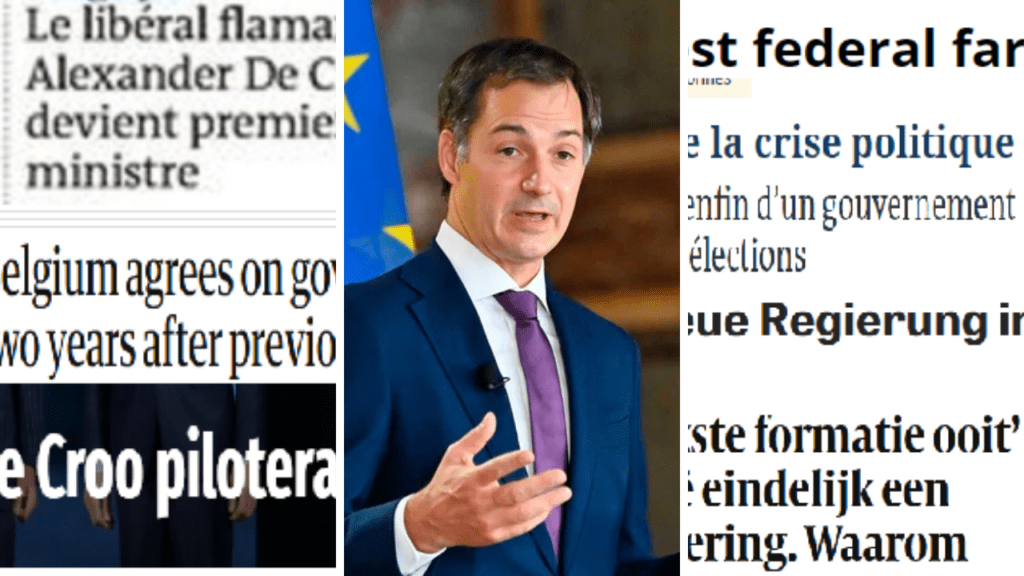As the news of the formation of Belgium's federal government reached the rest of the world, a number of foreign newspapers and websites reacted to the new Vivaldi coalition.
While most newspapers and websites focus on the long period since the previous government fell (nearly two years ago, in December 2018) or how long the negotiations lasted (approximately 16 months) since the last elections, some are quick to say that the governing parties do not have a lot in common.
The European news channel, Euronews, for its part, leads with "Will Belgium's latest federal farce push the country to split?"
According to Peter Bursens, professor of political science at the University of Antwerp, interviewed by Euronews, the major challenge for the government is to "restore faith and confidence," saying that many people have become indifferent.
"You need to engage people somehow to make democracy work, right? This is one of the dangerous implications of the whole episode because people become so fed up with it, they kind of turn their back to politics," he said.
France
The French daily Le Monde called the Vivaldi coalition a "patchwork political project" and said that the main motivation to unite the seven parties was "the desire to avoid new elections."
"In the context of the Covid-19 pandemic and the contested management of this crisis, it is indeed likely that voters would have expressed their bad mood by raising their voices to the extremes: the Vlaams Belang, a xenophobic and independentist party of the extreme right, in Flanders, and the Labour Party (PTB, radical left) in Wallonia," the newspaper said.
Le Figaro, another daily, announced that "Belgium finally emerges from its political crisis" but also referred to the Vivaldi coalition as a "forceps agreement" to avoid the alternative of new elections.
The work that awaits this new government "is immense in this country, whose economy has been shattered by the coronavirus and where the 10,000 deaths mark was crossed on Wednesday," it wrote.
It also added that one thing is certain, namely that "the leader of the N-VA and mayor of Antwerp, Bart De Wever, will not give him any gifts."
Related News
- Who is in Belgium's new federal government?
- New government’s programme: diversity, gender equality and investment in justice
- New Belgian PM banks on unity to 'get Belgium working again'
The United Kingdom
The Guardian highlights the health situation in Belgium, and that the authorities have been strongly criticised for the management of the virus in nursing homes, which account for 50% of the deaths.
"De Croo is thought to have been chosen as prime minister to balance the fact that the two biggest Flemish parties are in opposition," the daily wrote.
The Netherlands
The Dutch newspaper De Volkskrant highlights the considerable ideological differences within the new government and the lack of mutual trust between the Vivaldi partners, and called the formation period "the ugliest ever."
Luxembourg
The Luxemburger Wort newspaper also looks back at the challenge facing the new coalition, which "inherits a country in economic distress. All the warnings are in the red, even if the decline in GDP is less severe than initially announced."
The year 2021 "should be marked by a cascade of bankruptcies and a sharp rise in unemployment."
Germany
Die Zeit pointed out that "the governing parties from Flanders represent less than half of the votes there," adding that "several thousand people demonstrated against the coalition over the weekend."
German public broadcaster, Deutsche Welle, said that "the very long formation of a government" had cost the citizens' trust, "which must now be regained."
Additionally, the broadcaster stressed that Belgium is "a politically divided country" that "has a reputation for being ungovernable."
Maïthé Chini
The Brussels Times

